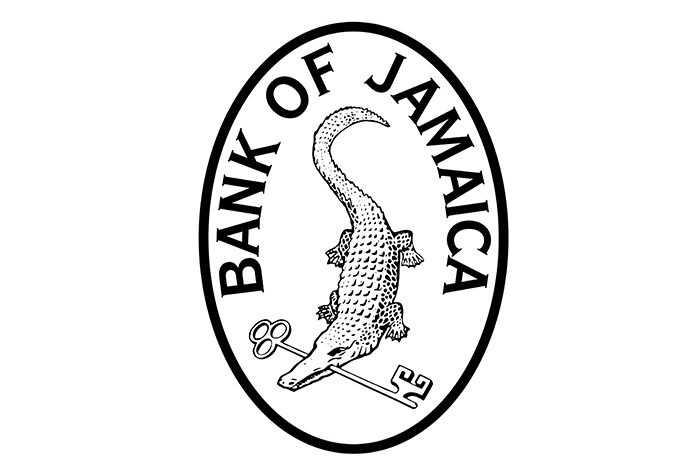After quietly exploring the viability of a central bank digital currency (CBDC) for some time, Bank of Jamaica (BOJ) took the decision in May 2020, as a part of our ongoing retail payments reform, to venture into this digital innovation that is fast becoming a feature of global central banks. We are proud to be a part of a trend in central banking that is being led by the Caribbean.
CBDC is a digital form of central bank issued currency and is therefore legal tender. It is not to be confused with cryptocurrency, which is privately issued and not backed by a central authority. CBDC is fully backed by the Central Bank, the sole issuer.
The legislative review to amend the Bank of Jamaica Act to concretize BOJ as sole issuer of CBDC is well underway.
CBDC will not be a cost to consumers and will be a full complement to bank notes and coins issued by BOJ. Both CBDC and physical notes and coins will co-exist in the payment space. CBDC will have the major aspects of money, as now obtains with bank notes and coins, with the only significant difference being that it is an alternative to cash to be used primarily for transactions, and will not attract interest when stored in any account. It will, however, like cash, be a store of face value, a medium of exchange, a single unit of account, and a standard of payment.
As legal tender, CBDC can be exchanged on a one to one basis with physical cash. Households and businesses will be able to use CBDC to make payments and store value at no cost. Unlike cash, however, consumers will be able to make payments with CBDC anywhere, anytime, on any compatible device.
WHAT CBDC MODEL WILL WE USE?
Countries and territories using CBDCs issue them using different models, usually including cross border, wholesale, retail, and hybrid (a cross between the wholesale and the retail).
A cross-border CBDC entails digital currency issued by the central bank to commercial banks, which can be used for foreign exchange transactions across jurisdictions.
A wholesale CBDC entails digital currency issued by the central bank directly to commercial banks, which is in turn distributed by commercial banks in the retail market.
Retail CBDC entails digital currency issued by the central bank directly to all users. This would mean that all users would have CBDC accounts at the central bank.
A hybrid CBDC aims to combine the benefits of both wholesale and retail in various forms, and falls somewhere on the spectrum between the wholesale and retail models.
The CBDC to be issued by BOJ is solely for domestic use, and Bank of Jamaica will be using the hybrid model for issuing CBDC. BOJ will therefore not only issue to commercial banks, but also to other deposit-taking institutions (DTIs) – building societies, merchant banks and authorised payment service providers (PSP), all licensed or authorised by BOJ. These entities will distribute CBDCs to the retail market.
CONSUMER ACCESS AND USE OF CBDC
In order to use CBDC, consumers will need to have a CBDC account, which will be different from a regular bank account and much easier and simpler to obtain, with streamlined and simplified Know Your Customer (KYC) requirements. While persons who already have bank accounts will be able to automatically obtain a CBDC account, authorised PSP’s as well as DTI’s will be able to on-board unbanked customers. Customers will be able to transfer and convert funds seamlessly between regular and CBDC accounts.
In order to carry out CBDC transactions anywhere and at any time, consumers will be able to access, download and deploy a mobile wallet app on any smart phone, tablet or similar compatible device using the networks of both major telecom service providers. Customers will also be able to top-up their accounts with CBDC through all authorised agents or smart ABMs and do business using CBDC phone-to-phone with merchants.
BENEFITS OF CBDC
Depending on the specifics of our situations, some other countries and territories may anticipate slightly different benefits from using CBDC, but several benefits are universal, and apply to us.
Individual consumers and businesses will benefit from:
The sheer convenience, from a broadened and more modern payment system, of a digital alternative to cash that is seamless, secure, and simple to use.
Greater financial inclusion, as persons who do not currently have regular bank accounts will be able to access CBDC accounts in a way that will be easier and simpler than accessing regular bank accounts.
The financial system will benefit from:
Increases in systemic efficiency and significant reductions in costs for cash distribution and storage.
An increase in the menu items of services available to customers and an opportunity to innovate unique products and systems complementary to CBDC use.
Bank of Jamaica will benefit from:
Increased efficiency by removing the time and effort it takes to forecast currency needs and order new currency in advance.
Significant long-term cost savings. There will be no ‘wear and tear’ on digital currency, and it cannot get ‘lost in circulation,’ so there will never be a need for replacement. In addition, there will be no cost in increasing supply to the system if demand increases over time.
The modernization and expansion of BOJ’s currency minting and issuance processes, in addition to the further expansion and modernization of the national retail payments infrastructure in keeping with the desired increased digitization of the economy.
CHOICE OF TECHNOLOGY – NOT BLOCKCHAIN
The issuance and distribution of the CBDC will be fully integrated with the Bank’s financial market infrastructure, the JamClear® Real Time Gross Settlement System (RTGS). The approach will not compete with deposits in deposit taking institutions, but rather it will leverage the existing financial and telecommunications infrastructures of the country.
It is this consideration and prerequisite that led to BOJ choosing a non-block chain CBDC option. Not using the blockchain technology that is often associated with CBDCs is not because of any major concerns with blockchain, but rather that BOJ is mindful of the importance of utilizing a technological solution that would as seamlessly as possible interface with the country’s payment infrastructures. Consequently, the solution that BOJ has opted for adapts to traditional technology which is easily integrated with the Bank’s RTGS.
It is also:
a turnkey product that clearly establishes the currency management process from minting through to redemption and destruction;
supports distribution of the CBDC through financial intermediaries’ payment solution and facilitates immediate integration with existing legacy and payment systems;
facilitates delivery to end-user on mobile devices, cards; and
facilitates robust risk management tools.
To prepare for the introduction of CBDC in early 2022, a pilot CBDC solution will be tested in Bank of Jamaica’s Fintech Regulatory Sandbox between May 2021 and December 2021.
The public will be kept informed during each stage of the way forward.




